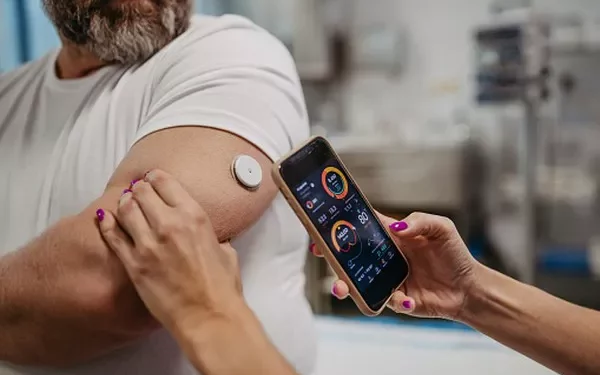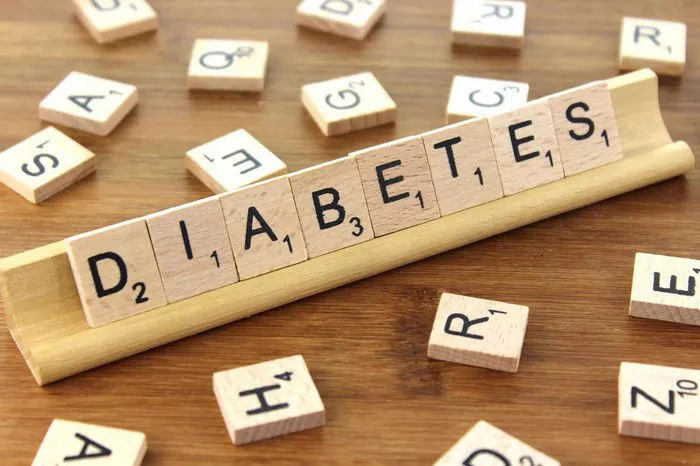Hypoglycemia, commonly referred to as low blood sugar, is a critical concern for individuals with diabetes. It occurs when blood glucose levels drop below normal ranges, typically below 70 mg/dL (3.9 mmol/L). While hypoglycemia often results from diabetes treatment, such as insulin or certain medications, random hypoglycemia poses a unique challenge. This article explores the causes, symptoms, diagnosis, and management strategies for random hypoglycemia in individuals with diabetes.
What is Random Hypoglycemia?
Random hypoglycemia refers to episodes of low blood sugar that occur unexpectedly, without a clear, predictable pattern. Unlike hypoglycemia that follows insulin or medication administration, random hypoglycemia can occur at any time, including during fasting or between meals. It presents a significant risk to individuals with diabetes, as it can lead to severe symptoms and complications if not promptly treated.
Causes of Random Hypoglycemia
Understanding the potential causes of random hypoglycemia is crucial for effective management and prevention. Several factors contribute to the occurrence of random hypoglycemia in people with diabetes:
Variability in Insulin Sensitivity
Insulin sensitivity can fluctuate throughout the day and is influenced by factors such as physical activity, stress, illness, and hormonal changes. These fluctuations can lead to unexpected drops in blood sugar levels, even in the absence of additional insulin or medication.
Delayed Carbohydrate Absorption
In some cases, the absorption of carbohydrates from food may be delayed, leading to a slower rise in blood glucose levels after a meal. This delay can result in hypoglycemia hours after eating, especially if insulin or medications were taken anticipating a more rapid increase in blood sugar.
Alcohol Consumption
Alcohol can interfere with liver function, which plays a crucial role in regulating blood glucose levels. Drinking alcohol without consuming adequate carbohydrates can lead to hypoglycemia, both during and after alcohol consumption.
Changes in Physical Activity
Intense or prolonged physical activity can increase the body’s sensitivity to insulin, leading to lower blood sugar levels. If insulin doses or carbohydrate intake are not adjusted accordingly, hypoglycemia may occur during or after exercise.
Medication Interactions
Certain medications, including other diabetes medications like sulfonylureas or meglitinides, can increase the risk of hypoglycemia when combined with insulin or other glucose-lowering agents. The interaction between medications can lead to unexpected drops in blood sugar levels.
Underlying Health Conditions
Certain health conditions, such as adrenal insufficiency, liver disease, kidney disorders, and pituitary gland disorders, can affect glucose metabolism and increase the risk of hypoglycemia. Individuals with diabetes and these underlying conditions may be more susceptible to random hypoglycemia.
Hormonal Changes
Fluctuations in hormone levels, such as cortisol, growth hormone, and glucagon, can impact blood glucose regulation. Hormonal changes associated with puberty, menopause, or menstrual cycles can contribute to random hypoglycemic episodes.
Insulinoma
While rare, insulinoma is a tumor of the pancreas that produces excessive amounts of insulin, leading to recurrent episodes of hypoglycemia. Insulinomas are typically benign but require medical evaluation and treatment.
Erratic Eating Patterns
Irregular meal times, skipping meals, or inadequate carbohydrate intake can disrupt blood glucose levels and contribute to hypoglycemia. This is particularly relevant for individuals with diabetes who rely on meal timing and carbohydrate consistency to manage their condition.
Symptoms of Random Hypoglycemia
Recognizing the symptoms of hypoglycemia is crucial for timely intervention and preventing severe complications. Symptoms can vary depending on the severity of the low blood sugar and may include:
Mild to Moderate Symptoms:
- Shakiness or tremors
- Sweating
- Palpitations or rapid heartbeat
- Hunger
- Irritability or mood changes
- Anxiety or nervousness
- Blurred vision
- Weakness or fatigue
Severe Symptoms (requiring immediate medical attention):
- Confusion or difficulty concentrating
- Slurred speech
- Loss of coordination
- Seizures
- Loss of consciousness
It’s essential for individuals with diabetes and their caregivers to be familiar with these symptoms and take prompt action to raise blood sugar levels if hypoglycemia is suspected.
Diagnosis of Random Hypoglycemia
Diagnosing random hypoglycemia involves a thorough evaluation of the individual’s medical history, symptoms, and blood glucose levels. Key steps in diagnosing and managing random hypoglycemia include:
Blood Glucose Monitoring
Regular monitoring of blood glucose levels is essential for identifying episodes of hypoglycemia. Continuous glucose monitoring (CGM) systems can provide real-time data on blood sugar trends and alert users to potential hypoglycemic events.
Medical History Review
A comprehensive review of the individual’s medical history, including diabetes management strategies, medication use, recent physical activity, and dietary habits, can provide insights into potential triggers for random hypoglycemia.
Laboratory Tests
Laboratory tests, including fasting blood glucose tests, HbA1c levels (average blood glucose over the past 2-3 months), and additional blood tests to evaluate liver and kidney function, may be ordered to assess overall diabetes management and identify any underlying health conditions contributing to hypoglycemia.
Glucose Tolerance Testing
In some cases, a glucose tolerance test may be recommended to evaluate how the body responds to glucose intake over a period of time. This test can help identify delayed or abnormal glucose metabolism that may contribute to random hypoglycemic episodes.
Management Strategies for Random Hypoglycemia
Effectively managing random hypoglycemia requires a multifaceted approach that addresses potential triggers, promotes proactive blood glucose monitoring, and ensures prompt intervention when low blood sugar occurs. Key management strategies include:
Individualized Diabetes Management Plan
Developing a personalized diabetes management plan with the guidance of a healthcare provider is essential for optimizing blood glucose control and reducing the risk of hypoglycemia. This plan may include:
- Blood glucose monitoring: Regularly checking blood glucose levels, particularly before and after meals, exercise, and bedtime.
- Medication adjustments: Adjusting insulin doses or other glucose-lowering medications based on blood glucose trends, physical activity levels, and dietary habits.
- Meal planning: Following a consistent meal schedule, consuming balanced meals with adequate carbohydrates, proteins, and fats, and incorporating snacks as needed to prevent hypoglycemia.
Hypoglycemia Awareness and Prevention
Educating individuals with diabetes and their caregivers about the signs and symptoms of hypoglycemia, as well as preventive measures, is crucial for early detection and intervention. Strategies to prevent random hypoglycemia include:
- Carrying fast-acting carbohydrates: Keeping glucose tablets, juice boxes, or snacks containing carbohydrates readily available to raise blood sugar levels quickly if hypoglycemia occurs.
- Wearing medical identification: Wearing a medical bracelet or necklace that indicates the individual has diabetes and may require assistance during a hypoglycemic episode.
- Avoiding excessive alcohol consumption: Limiting alcohol intake and consuming carbohydrates when drinking alcohol to prevent alcohol-induced hypoglycemia.
Continuous Glucose Monitoring (CGM)
Utilizing CGM systems can provide real-time data on blood glucose trends, alert users to potential hypoglycemic events, and assist healthcare providers in adjusting diabetes management strategies to optimize blood glucose control.
Medication Review and Adjustment
Reviewing current medications, including insulin and other glucose-lowering agents, with a healthcare provider is essential for identifying potential interactions or dosing adjustments that may contribute to random hypoglycemia.
Lifestyle Modifications
Incorporating regular physical activity, managing stress levels, and prioritizing adequate sleep can support overall diabetes management and reduce the risk of hypoglycemic episodes.
Emergency Management of Severe Hypoglycemia
Severe hypoglycemia requires immediate medical attention and may require treatment with glucagon, a hormone that raises blood glucose levels quickly. Individuals at risk of severe hypoglycemia should have a glucagon emergency kit readily available, and caregivers should be trained in its administration.
See also: Insulin Treats What Type Of Diabetes
Conclusion
Random hypoglycemia poses a significant challenge for individuals with diabetes, requiring vigilant monitoring, proactive management strategies, and timely intervention to prevent complications. By understanding the potential causes, recognizing symptoms, and implementing personalized diabetes management plans, individuals with diabetes can reduce the risk of random hypoglycemia and achieve better overall health and well-being. Collaboration with healthcare providers, adherence to diabetes management guidelines, and ongoing education are essential components of effective hypoglycemia management for individuals living with diabetes.
Related topics:
What Are Some Low Carb Foods Suitable For People With Diabetes?


























